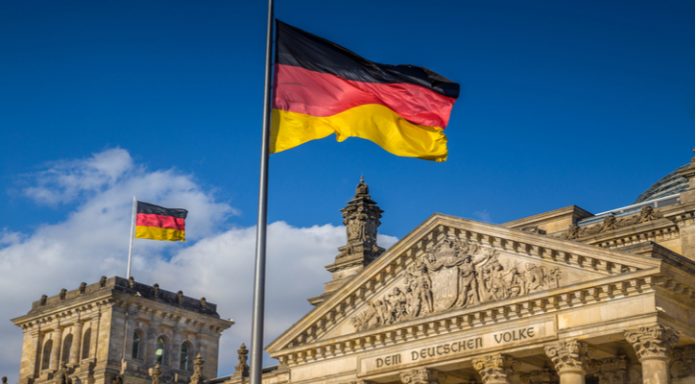The pound pushed marginally higher versus a weaker euro on Tuesday. As the domestic political picture stabilised in the UK and trade war talks was also very limited, investors were able to switch their attention back onto the economic calendar. The pound euro exchange rate ended the session at €1.1300.
| What do these figures mean? |
|---|
|
When measuring the value of a pair of currencies, one set equals 1 unit and the other shows the current equivalent. As the market moves, the amount will vary from minute to minute. For example, it could be written: 1 GBP = 1.13990 EUR Here, £1 is equivalent to approximately €1.14. This specifically measures the pound’s worth against the euro. If the euro amount increases in this pairing, it’s positive for the pound. Or, if you were looking at it the other way around: 1 EUR = 0.87271 GBP In this example, €1 is equivalent to approximately £0.87. This measures the euro’s worth versus the British pound. If the sterling number gets larger, it’s good news for the euro. |
UK Prime Minister Theresa May is still in power despite two further resignation from Conservative vice chairs. The UK PM stood her ground and was rewarded with a softer tone from German Chancellor Angela Merkel and EU Chief negotiator Michel Barnier who insisted that this new stance from the UK means progress can now be made towards a Brexit deal. So, with domestic politics back on track, at least for the time being, investors looked to economic data, which was decidedly mixed.
UK manufacturing and industrial production both failed to live up to analyst’s expectations and overshadowed a 0.3% increase in a monthly GDP figure. Industrial production increased just 0.8% in May, down from 1.6% and below analyst forecasts of 1.8%. Manufacturing production increased just 1.1% year on year in May, significantly below the 1.9% analysts had pencilled in. These figures did nothing to increase optimism over the heath of the UK economy.
| Why does poor economic data drag on a country’s currency? |
|---|
| Slowing economic indicators point to a slowing economy. Weak economies have weaker currencies because institutions look to reduce investments in countries where growth prospects are low and then transfer money to countries with higher growth prospects. These institutions sell out of their investment and the local currency, thus increasing supply of the currency and pushing down the money’s worth. So, when a country or region has poor economic news, the value of the currency tends to fall. |
Today the UK calendar is very quiet once again. This means any Brexit headlines could create some volatility in the pound.
Will Draghi Lift The Euro?
The euro struggled to make any meaningful move higher in the previous session after a very disappointing economic sentiment reading in both Germany and the wider eurozone. Fears over an escalation in trade frictions with the US weighed on economic sentiment as measured by the ZEW survey. Any positive German industrial and manufacturing data through the month has been greatly overshadowed by the brewing political uncertainty and the anticipated negative effect on the economies involved.
Today, European Central Bank President Mario Draghi will give a speech. Given that his last appearance was uncharacteristically confident over the outlook of the eurozone economy, a repeat performance could boost the euro. A more confident sounding Draghi, could boost optimism over a rate hike by the central bank, which could boost the common currency.
This publication is provided for general information purposes only and is not intended to cover every aspect of the topics with which it deals. It is not intended to amount to advice on which you should rely. You must obtain professional or specialist advice before taking, or refraining from, any action on the basis of the content in this publication. The information in this publication does not constitute legal, tax or other professional advice from TransferWise Inc., Currency Live or its affiliates. Prior results do not guarantee a similar outcome. We make no representations, warranties or guarantees, whether express or implied, that the content in the publication is accurate, complete or up to date. Consult our risk warning page for more details.
This article was initially published on TransferWise.com from the same author. The content at Currency Live is the sole opinion of the authors and in no way reflects the views of TransferWise Inc.





